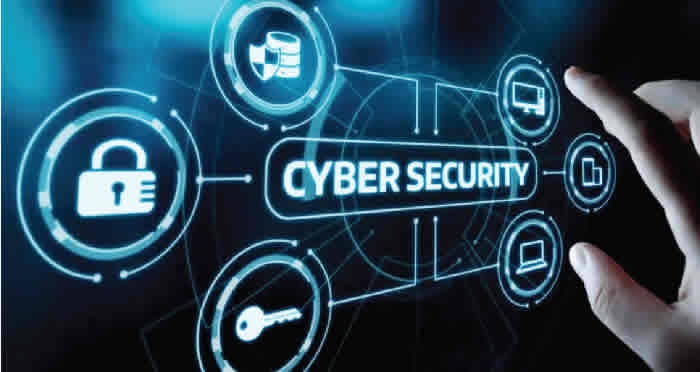The introduction of the 0.5 per cent cybersecurity levy on all banking transactions has sparked widespread discontent among Nigerians.
On Monday, the Central Bank of Nigeria(CBN) issued a circular to various financial institutions, including commercial, merchant, non-interest, and payment service banks, indicating that the levy would come into effect two weeks from 6 May.
“The levy shall be applied at the point of electronic transfer origination, then deducted and remitted by the financial institution. The deducted amount shall be reflected in the customer’s account with the narration, ‘Cybersecurity Levy’.”
“Deductions shall commence within two weeks from the date of this circular for all financial institutions and the monthly remittance of the levies collected in bulk to the NCF account domiciled at the CBN by the fifth business day of every subsequent month,” the directive read in part.
The new provision requires “a levy of 0.5% (0.005) equivalent to a half percent of all electronic transactions value” to be made by “the business specified in the Second Schedule to this Act”.
In essence, the act, which previously stated only the decimal value of the levy (0.005), introduced the percentage equivalent (0.5 percent) of the levy.
For instance, if a sender intends to send N50,000 to a recipient, 0.5 percent of the amount would amount to N250.
Similarly, multiplying N50,000 by 0.005 equals to N250.
Consequently, it is important to note that 0.005 is 0.5 percent.
Reactions
Nigerians nationwide are expressing their dissatisfaction, highlighting that banking transactions are becoming increasingly costly due to numerous charges.
A user on the X microblogging platform, Sarki, wrote: “In a country plagued by hardship, poverty, & unemployment, the Federal government has introduced new cyber security levies”.
Lola Okunrin, another user, noted that “Cybersecurity Levy in a country where it’s looking like bank staff are giving out our banking details to scammers. Our cyberspace is not secure at all and we are getting charged for it,”
Yet another user, @seyilaw1 says: “Cybersecurity level, according to the act, is 0.005%, and different figures from 0.5% to 3% are being thrown around.
A 0.5% charge in the Nigeria of today is in itself too much punishment on Nigerians. Are we trying to discourage banking transactions again and encourage cash keeping? @cenbank should revisit this abeg. Stamp duty is something, and now this. It is unacceptable. @NGRPresident @officialABAT, let the poor breathe.”
In its intervention, the Socio-Economic Rights and Accountability Project (SERAP) and the Nigeria Labour Congress have called for the withdrawal of the directive.
In a statement issued by Kolawole Oluwadare, Deputy Director of SERAP, the organisation called on President Bola Tinubu’s administration to retract the “arbitrary and illegal directive” issued by the CBN within 48 hours.
SERAP also urged the administration to halt Nuhu Ribadu and the Office of the National Security Adviser (NSA) from enforcing section 44 and other oppressive clauses of the Cybercrimes Act 2024.
These measures blatantly contravene the Nigerian Constitution, the African Charter on Human and Peoples’ Rights, and the International Covenant on Civil and Political Rights, all of which Nigeria is a signatory to, the organisation said.
“If the unlawful CBN directive is not withdrawn and appropriate steps are not taken to amend the repressive provisions of the Cybercrimes Act within 48 hours, SERAP shall consider appropriate legal actions to compel the Tinubu administration to comply with our request in the public interest.
“Withdrawing the unlawful CBN directive and repealing the repressive provisions of the Cybercrimes Act 2024 will be entirely consistent with Tinubu’s constitutional oath of office requires public officials to uphold the provisions of the constitution, and the rule of law and abstain from all improper acts,” the statement read in parts.
The National Association of Nigerian Students (NANS) has bemoaned the newly introduced 0.5 per cent cybersecurity levy to be charged on all bank transactions.
In a communiqué issued by NANS President, Pedro Obi, the union expressed deep concerns over the introduction of another policy that “burdens the already-strained populace, especially amidst prevailing economic challenges.”
NANS firmly denounced the CBN’s new directive, labeling it as an undue strain on hardworking Nigerians.
“While purportedly aimed at enhancing cybersecurity frameworks, NANS emphasizes that this levy only adds to the financial pressures faced by individuals and businesses across the nation.
The NLC raised concerns over the imposition of a levy on electronic transactions, arguing that it burdens workers and vulnerable groups.
The union said it recognizes the importance of cybersecurity in today’s digital age but imposing such a levy on electronic transactions, without due consideration for its implications on workers and the vulnerable segments of society, is unjustifiable.
This levy stands as another tax too much for Nigerians, burdening them with additional financial responsibilities, a press statement signed by its president, Joe Ajaero, said.
“We see in this levy another gang up by the ruling elite to continue its extortion and exploitation of hapless and helpless workers and the masses so that their cronies in various financial centres can continue wallowing in unbridled consumption. During our last May day speech we called on the government to prioritize the welfare of Nigerian workers and masses in their policy directions and actions instead of profit-seeking that unleashes more pressure on the people.
“We wonder when it has become a crime for the people to save their meagre incomes in the Banks and whether the government intends to encourage people to resort once again to keeping cash and using cash transactions instead of electronic transfers which seem to have become an undoing for the people?
“While the CBN has exempted interbank transfers and loan transactions from this levy, the broader impact on everyday transactions cannot be overlooked. Such deductions directly affect the disposable income of workers and further diminish the purchasing power of the common citizen,” the statement said.
PT/Daily Trust/The Cable

